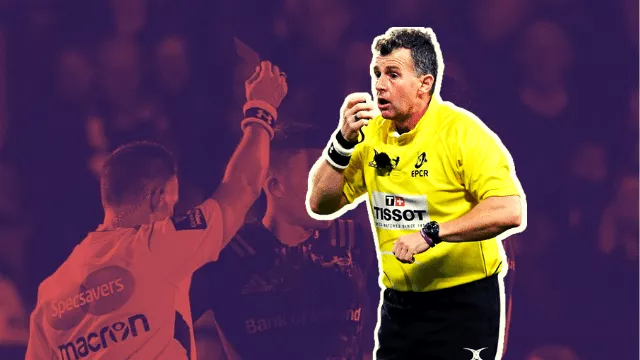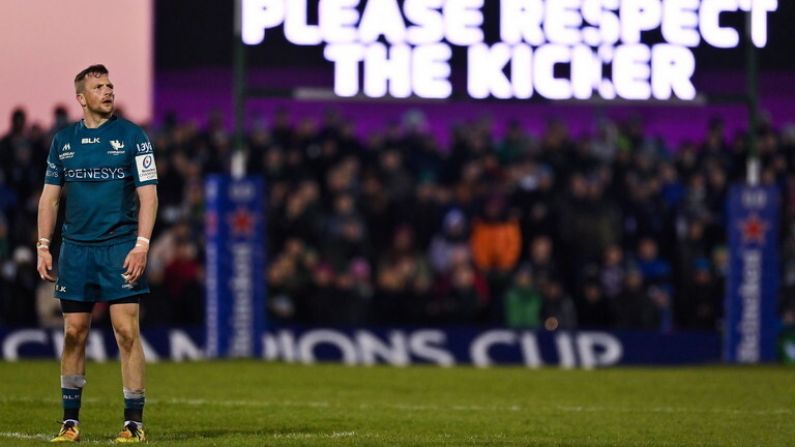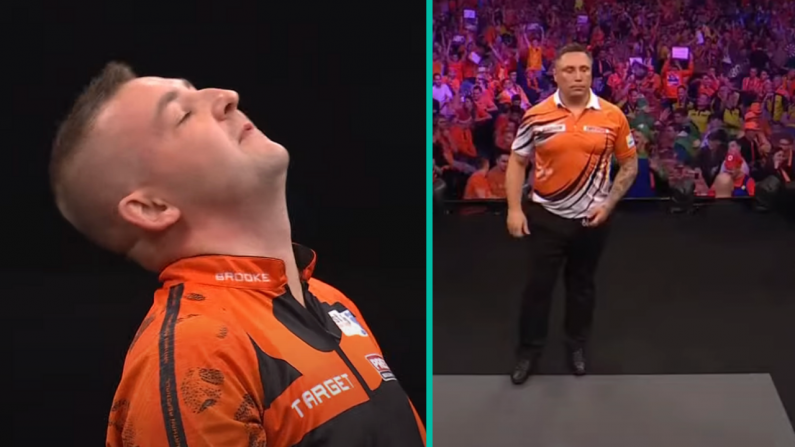The possibility of extra Time in the Champions Cup last 16 second leg ties looms, with the new structure creating some interesting scenarios. This has many people wondering about the Champions Cup extra time rules and regulations.
Leinster’s clash with Connacht in the Aviva Stadium kicking off the action, with Leo Cullen's side taking a five point lead.
This year’s Champions Cup round of 16 is unique as it is decided over two legs, something that isn’t typically associated with rugby.
With many ties still in the balance, this opens the possibility of this weekend's games going to extra time, and even a place-kicking competition.
This is a rare situation in knockout rugby, with Leinster’s 2015 semi-final loss to Toulon the last Irish side to play extra-time in the Champions Cup.
The only Champions Cup game that had to be decided through place kicks is Leicester Tigers 2009 Semi-Final victory over Cardiff.
So, what happens if the aggregate score is level after 80 minutes this weekend? Here are the Champions Cup extra time rules.
Champions Cup Extra-Time Rules
If the aggregate scores are level after 80 minutes, the game will be decided in 20 minutes of extra time, with two 10-minute halves.
What happens if the aggregate scores are still level after extra time?
If the sides cannot be separated at the end of extra time, the team that has scored the most tries, including extra time, will go through.
If both sides have scored the same number of tries, then a placekicking competition will take place.
What are the rules of a Champions Cup place-kicking competition?
In the scenario that the teams are level at the end of extra time and have scored the same amount of tries, a place-kicking competition will decide the outcome.
Each team will nominate three goal-kickers that must be on the pitch when the final whistle was blown.
The kickers will take two kicks each from designated points on the 10-metre line and 22.
If the sides cannot be separated after the six kicks are taken, it will be decided by sudden death.
What this means for the Irish sides
With the possibility of extra time and many ties separated by one score, tries will be vital, especially for the Irish provinces.
Leinster scored three tries in last week’s first leg victory over Connacht, with Andy Friend’s side one try behind. Leinster lead by five heading into today's game.
Shane Daly’s second half try leaves Munster one try behind Exeter, while Romain Natamack’s late try for Toulouse means Ulster lead the tie four tries to two.
Exeter lead by 5, as do Ulster.
SEE ALSO: Nigel Owens Speaks Out Against Rugby's 20 Minute Red Card Proposal












